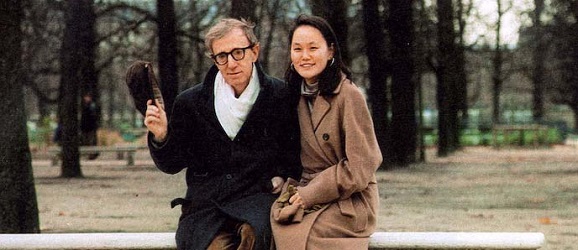Ladies, You Can Blame Men For Menopause Now
This article is more than 2 years old
 Pretend we’re in a comedy club, and that I’m standing in front of a brick wall. “Any middle-aged ladies in the crowd tonight? Men and women are different, am I right? You know why the chicken really crossed the road? Because his wife was going through menopause and was being a total bitch to him all day about everything he said. Yeah? Tough crowd, man.”
Pretend we’re in a comedy club, and that I’m standing in front of a brick wall. “Any middle-aged ladies in the crowd tonight? Men and women are different, am I right? You know why the chicken really crossed the road? Because his wife was going through menopause and was being a total bitch to him all day about everything he said. Yeah? Tough crowd, man.”
You can blame a man for wasting your time with that opening paragraph, and if researchers from Ontario’s McMaster University are correct, you can blame the evolution of men for women having to go through menopause. It’s kind of a wild theory, and their study‘s significance probably depends on the reader’s interpretation. Rama Singh, a professor in the school’s Department of Biology, worked with computer models created by Richard Morton, professor emeritus in Biology, and Jonathan Stone, associate professor of Biology and associate director of the McMaster’s Origins Institute, which focuses partly on mankind’s beginnings. Once all their work came together, it became clear that men’s frequent preference for younger women may have screwed up the female gender’s ability to stay fertile for an entire lifespan. Also, let’s blame Darwin for inventing this whole evolution mess anyway. Is this thing on?
The undying “Grandmother Theory” holds that women have evolved to stave off reproduction in order to focus on caring for their grandchildren and enabling the survival of the family, but that never really seemed right. Instead of menopause preventing reproduction, Singh and his team believe that it is the lack of reproduction that has brought on menopause. “How do you evolve infertility?” he asks. “It is contrary to the whole notion of natural selection. Natural selection selects for fertility, for reproduction — not for stopping it.”
The idea is that, as men of all types left their current mates for younger ones over the generations, the older women were less likely to continue reproducing. Now we’re at the point where having a child after 40 presents an entirely new set of risks that might not have happened, had men stuck to their own generation and curbed their mid-life crises.
“This theory says that natural selection doesn’t have to do anything,” Singh says. “If women were reproducing all along, and there were no preference against older women, women would be reproducing like men are for their whole lives.” If you take a look around, you’ll notice that most other creatures in the animal kingdom can continue having children until death. Singh hopes that if this new research is true, and menopause developed over time, a way to reverse it could someday be found. I’m pretty sure it wouldn’t involve convincing middle-aged men to remain content with their same-aged lovers. Talk about science fiction.












